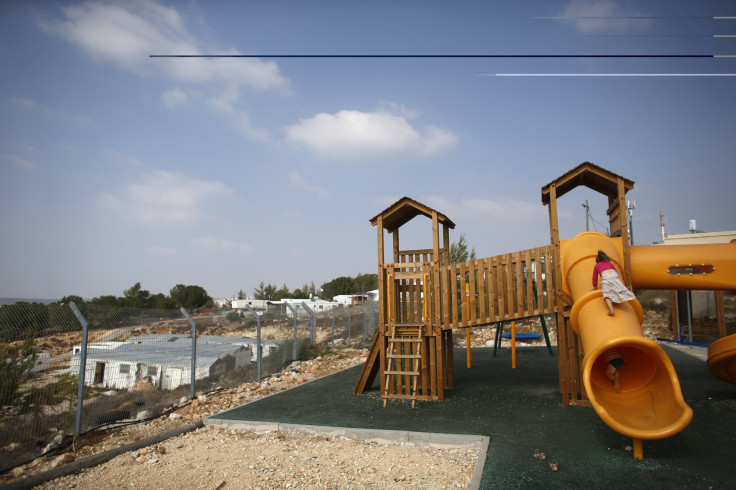European Union Gears Up For Sanctions Against Israel Over Settlements

The European Union plans to impose sanctions against Israel if it continues to thwart a two-state solution of the conflict with Palestinians by continuing to build settlements in certain areas of the West Bank, according to confidential documents cited by European diplomats and senior Israeli officials in Israeli newspaper Haaretz. The documents, released by the EU’s European External Actions Service (EEAS) to officials of the 28 EU member states, discuss actions the EU would take if Israel continues to build settlements, according to a Sunday report in Israeli newspaper Haaretz.
While Israeli officials reported the existence of the documents and some of their contents back to the country’s Foreign Ministry, they are not believed to have obtained a full copy. However, the EU's foreign policy chief Federica Mogherini has denied the claims, saying that the EU has no intention of imposing any sanctions.
“The peace process is in deep freeze, but the situation on the ground is not. There is big frustration in Europe and zero tolerance for settlement activity. This paper is part of the internal brainstorming being done in Brussels [the de facto capital of the EU] these days, about what can be done to keep the two-state solution alive,” a European diplomat familiar with the details of the discussion around the document said.
The document represents a change in policy that would signal the EU is taking a hard-line approach to Israel. Previously, the Union did not oppose building in the West Bank as long as Israel was seen to be advancing the peace process, whereas the new policy appears to view the settlements as an explicit action that is endangering the two-state solution.
European diplomats who have seen the documents told Haaretz that there was now a specific red line that Israel should not cross -- including, for example, building further settlements in what’s known as the E1 area in between Ma’aleh Adumim and Jerusalem, which would further fracture the territorial integrity of any future Palestinian state.
Some of the proposed sanctions include restricting free-trade agreements between the EU and Israel, limiting cooperation with Israel in general, and even marking products manufactured in the settlements for sale in EU supermarkets.
The documents are the beginning stages of a larger discussion between diplomats from EU officials who are experts on Middle East politics. “This paper is an uncooked dish and the process is only beginning, but it is slowly continuing,” a senior European diplomat told Haaretz.
The revelations have caused concern within the Israeli government, which is facing growing international calls for a boycott of Israeli goods, tied to the controversial BDS (Boycott, Divest, Sanction) movement.
Around a month ago, similar internal EU documents called for a beginning of talks between diplomats from the EU and Israel making it clear that sanctions would begin if Israel crossed the newly drawn red line.
According to Haaretz, the Israeli government viewed the talks as merely a hearing before a foregone conclusion. “Even before we began the talks that the EU requested, they had already started planning for them to fail and to impose sanctions,” a senior Foreign Ministry official said.
© Copyright IBTimes 2024. All rights reserved.






















